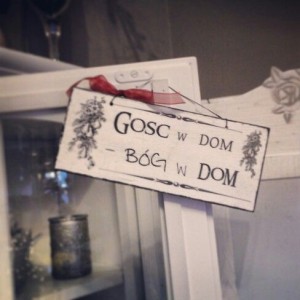Polish culture is full of rich history and traditions . The following article highlights the main aspects of the polish culture. If you need any furture advice on polish culture or would like to use our Polish translation services then do not hesitate to get in touch with us.
Polish people are much more straightforward in comparison to English people. If Poles know you, they will speak their mind and be honest in their opinions. However, it is only true if you have already established a strong relationship with them. Otherwise, it may be difficult to get their opinion out at all. Most Poles are highly educated people. More than 55% of young people after leaving school attend universities. However, this high percentage of further education among young people, might devalue the university degree education, which may result in a situation where a skilled worker earn more than a university educated young person. Because of their history Poles do not trust bureaucracy or administration. Poles are known to be extremely reliable and hard-working people. This is the reason a rapidly growing number of UK based companies decide to approach the market, of course, with the help of an expert translation agency.
Polish people show a strong tendency for separating their work life from their personal life because they like to appear professional and reserved at work especially at the beginning, however if they get to know you better and create a strong relationship with you, their expressiveness may surprise you. The core values of Polish people are national pride, family, religion and hospitality which is their best known national characteristic. People in Poland believe that visitors bring blessing to their homes. Therefore there is a saying in Polish: “Gość w dom, Bóg w dom”, which can be loosely translated as “God enters with guests”. The polish hospitality can also be described quite accurately by “Czym chata bogata”, which refers to whatever’s in the house being gladly shared with the guests, something of the Spanish “Mi Casa Su Casa”. The The visitor to a Polish home can expect to be fed with loads of hearty food and drinks and never leave hungry or thirsty. Of course you can decline, but it may be perceived as if you don’t appreciate hosts’ hospitality, therefore if ever invited for dinner, make sure you go with an empty stomach! If by any chance you make your way over on a public transport, you must be prepared to display the fashioned courtesy: give up your seat to the elderly and make way for ladies. When arrive at the house, you’ll be expected to take off your shoes, but not to worry, you will be offered a pair of super-comfy slippers almost immediately. Addressing Polish people may be quite tricky for an English person at first as they don’t use the informal “you” without knowing somebody well. In that case the prefix Pan (Mr) or Pani (Ms) is the politest way to address a Pole.


